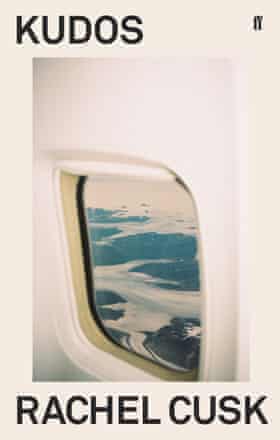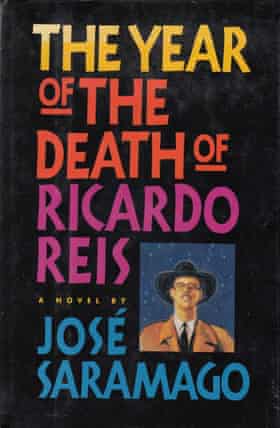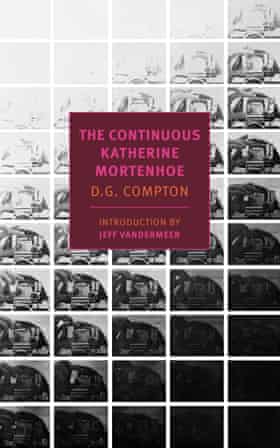Best summer books 2018, as picked by writers and cultural figures – part seven
From Pulitzer prize-winners to Penguin classics, poetry anthologies to the latest page-turners, here are the books to take to the beach this summer
Sun 8 Jul 2018 09.00 BST
Niven Govinden
I recommend Territory of Light (Penguin, translated by Geraldine Harcourt), Yuko Tsushima’s stories of marital disappointment, parenthood and loneliness following a separation in 70s Tokyo. It’s unflinching and brings to mind Elena Ferrante’s early work. Caryl Phillips’ novel A View of the Empire at Sunset (Vintage), about the becoming of Jean Rhys, fully inhabits the despair of damp prewar London and stifling colonial society abroad. Edouard Louis’s History of Violence (Harvill Secker), detailing a sexual attack and its aftermath, is shocking, but also tender in its examination of class difference and queer desire. Books I’m packing for Arles include Annie Ernaux’ s The Years (Fitzcarraldo Editions, translated by Alison L Strayer), Will Ashon’s forthcoming Wu-Tang epic, Chamber Music (Granta) and Nikesh Shukla’s The One Who Wrote Destiny (Atlantic).
Mark Kozelek
I’ve been travelling over the last month and I’ve been bouncing back and forth between books during my travels. The first is called Iron Ambition: My Life With Cus D’Amato (Sphere) by Mike Tyson and Larry Sloman. I’m a fan of Cus D’Amato, who also trained world champions Floyd Patterson and José Torres. I’m also reading Nietzsche for the first time, partly because Cus had Mike reading Nietzsche at 15 years old. I’m halfway through Thus Spake Zarathustra (Wordsworth, translated by Thomas Common) and will admit I can’t make head or tail of some of it. I think the book is telling me to believe in myself, to think at a higher-than-average level, and to not get bogged down with petty things. Ideal holiday reading.
Suzanne O’Sullivan
Anybody who wants a real treat must read Martina Evans’s Now We Can Talk Openly About Men (Carcanet). Full of insight and humour, it tells the story of two women’s lives in Ireland during the civil war. As a poet, Evans’s ability to choose just the right word is unerring. I also highly recommend Maggie O’Farrell’s I Am, I Am, I Am (Tinder), a memoir that rivals the beauty of her novels. My own summer holiday will be spent in Sweden doing research for a book. While there, I plan to reread some old favourites – starting with Tom Wolfe’s The Electric Kool-Aid Acid Test (Vintage).
Julie Myerson

Rachel Cusk’s Kudos (Faber) is one of the most astoundingly original and necessary books I’ve ever read. It made me laugh, think and cry. She’s my friend, but I recommend it without apology: I envy anyone who hasn’t read it yet. I was startled, but also very moved, by the almost abrasive directness of Rose Tremain’s memoir Rosie (Chatto & Windus). It did exactly what memoirs ought to do: made me want to rush straight back to her fiction. My ideal holiday (a bit of a fantasy at the moment) would therefore be a fortnight in Rome with all of Tremain on a Kindle, along with John Updike’s Rabbit (Penguin) quartet – which people have been ordering me to read for years – as well as Motherhood (Harvill Secker) by Sheila Heti, which I’ve been hoarding, and Never Anyone But You (Corsair) by the unfailingly brilliant Rupert Thomson.
Nicola Barker
I know it sounds a little sad, but I tend to get really excited when I receive the Polity Press’s new catalogue. They publish so much clever, challenging and fascinating stuff. Over the summer I plan to read Alain Corbin’s A History of Silence (Polity). Corbin writes sparely, beautifully and with an exquisite fastidiousness about, well… something and nothing: quiet. In the first chapter he recommends George Rodenbach’s The Bells of Bruges (Dedalus, translated by Mike Mitchell) and Max Picard’s The Flight from God (St Augustine’s Press). I intend to consume all three of the above, at home or on trains, in an atmosphere of gentle reverence.
Viet Thanh Nguyen
Luis Alberto Urrea’s The House of Broken Angels (Little, Brown) is a great American novel, if we understand “America” to be all of the Americas, including Mexico. It’s profane, funny and moving. Sayaka Murata’s Convenience Store Woman (Portobello, translated by Ginny Tapley Takemori) takes a universal space, the convenience store, and turns it into the setting for a darkly comic (and very short) novel about alienation and identity in an urban, capitalist society. Alexander Chee’s How to Write an Autobiographical Novel (Mariner) is a collection of essays about race, writing, politics, queerness and sexuality that is urgent and insightful. I’ll be in Paris for much of the summer, and I’ll be takingÉdouard Louis’ The End of Eddy (Vintage, translated by Michael Lucey), Leila Slimani’s Lullaby (Faber), Han Kang’s The Vegetarian (Portobello), Min Jin Lee’s Pachinko (Head of Zeus), Lisa Ko’s The Leavers (Dialogue) and Jenny Zhang’s Sour Heart (Bloomsbury).
Philip Hensher

This year, I’m packing José Saramago’s novels - I’ve only just got round to him, and I’m knocked out by the worldly precision and the combination of substance and grandeur. The Year of the Death of Ricardo Reis (Vintage, translated by Giovanni Pontiero) was a revelation, and I’m looking forward to the half dozen more now in a pile. The two new novels I really want to take away are both by favourite Australian authors: Michelle de Kretser’s The Life to Come (Allen & Unwin) and Tim Winton’s The Shepherd’s Hut (Picador). They’re both writers of wonderful freshness and energy. Just right for two weeks’ retreat at an Austrian health farm, to fit in between forest walks, massages, advanced treatments and 650 exquisitely tantalising calories a day.
Viv Albertine
One of my favourite books this year was Nine Island (Catapult) by Jane Alison, which is funny and wise and such a closely observed account of a single woman’s life during her time living in Florida. It’s so vividly described that I didn’t read it as fiction, which shows how good a writer Alison is. Her protagonist J’s reflections on sex, love and other people are so unapologetic and honest, I felt less alone and freakish while reading the book. Another that had me in its grip, due to her insightful and direct voice, was Kudos (Faber) by Rachel Cusk. Cusk has a piercing intellect but demonstrates it through perspicacity, not by showing off on the page. I came to the graphic memoir Persepolis (Pantheon) by Marjane Satrapi via my 19-year-old daughter. It is set in Iran around the Islamic revolution when the author is 10. We accompany her through her gradual awakening to politics, love, oppression and the complexity of families – and her drawings are enchanting. I am going to Hastings, East Sussex, for a week’s course at the art school. The books I’ll take with me are Motherhood (Harvill Secker) by Sheila Heti, and Zadie Smith’s new collection of essays, Feel Free (Hamish Hamilton).
Nikesh Shukla
Ponti (Picador) by Sharlene Teo is a sultry, hilarious dissection of mother-daughter relationships, and the effect of time and teenagehood on friendships, against the backdrop of Singapore B-movies. It oozes confidence. On Michael Jackson (Granta) is Margo Jefferson’s excellent, empathic take on the singer, encapsulating the pressures of being a child star, the most famous person on the planet and having a complicated legacy that can sometimes make people forget about the music. Meanwhile, Crudo (Picador) by Olivia Laing is a hot and heavy look at post-Brexit Britain through the eyes of newlywed Kathy as she summers in Italy. It’s Olivia Laing’s fiction debut and is very much a self-assured interrogation of the times we live in. James Smythe’s I Still Dream (Borough) is his most accomplished work – a past, present and future of AI, which is as human as it is otherworldly, and utterly engrossing. I am going to east Devon and will be taking the short story collection Heads of the Colored People (Chatto & Windus) by Nafissa Thompson-Spires, the memoir This Really Isn’t About You (Picador) by Jean Hannah Edelstein and Londoners (Granta) by Craig Taylor.
Paul Morley

Don Paterson’s wonderfully learned The Poem: Lyric, Sign, Metre (Faber) is pure joy for footnote freaks and those who like to get high thinking about thinking. Not so much about how to be a poet as how to be in a poem, or even be a poem, it also works as a great book about music. DG Compton’s The Continuous Katherine Mortenhoe (Gateway), written in 1974, coolly anticipated society being occupied with reality TV, and continues its journey from depicting an imaginary world to approaching nonfiction. I’ll be in Lisbon, switching between Shirley Collins’s All in the Downs (Strange Attractor) and Lamont Hawkins’s Raw: My Journey Into the Wu-Tang Clan (Faber), to see what they have in common. I’ll also be taking a handful of those nourishing one-pound Penguin Modern classics so I can go on holiday with George Orwell’s Notes on Nationalism, Albert Camus’s Create Dangerously, James Baldwin’s Dark Days, Kathy Acker’s New York City in 1979 and Samuel Beckett’s The End.



No comments:
Post a Comment